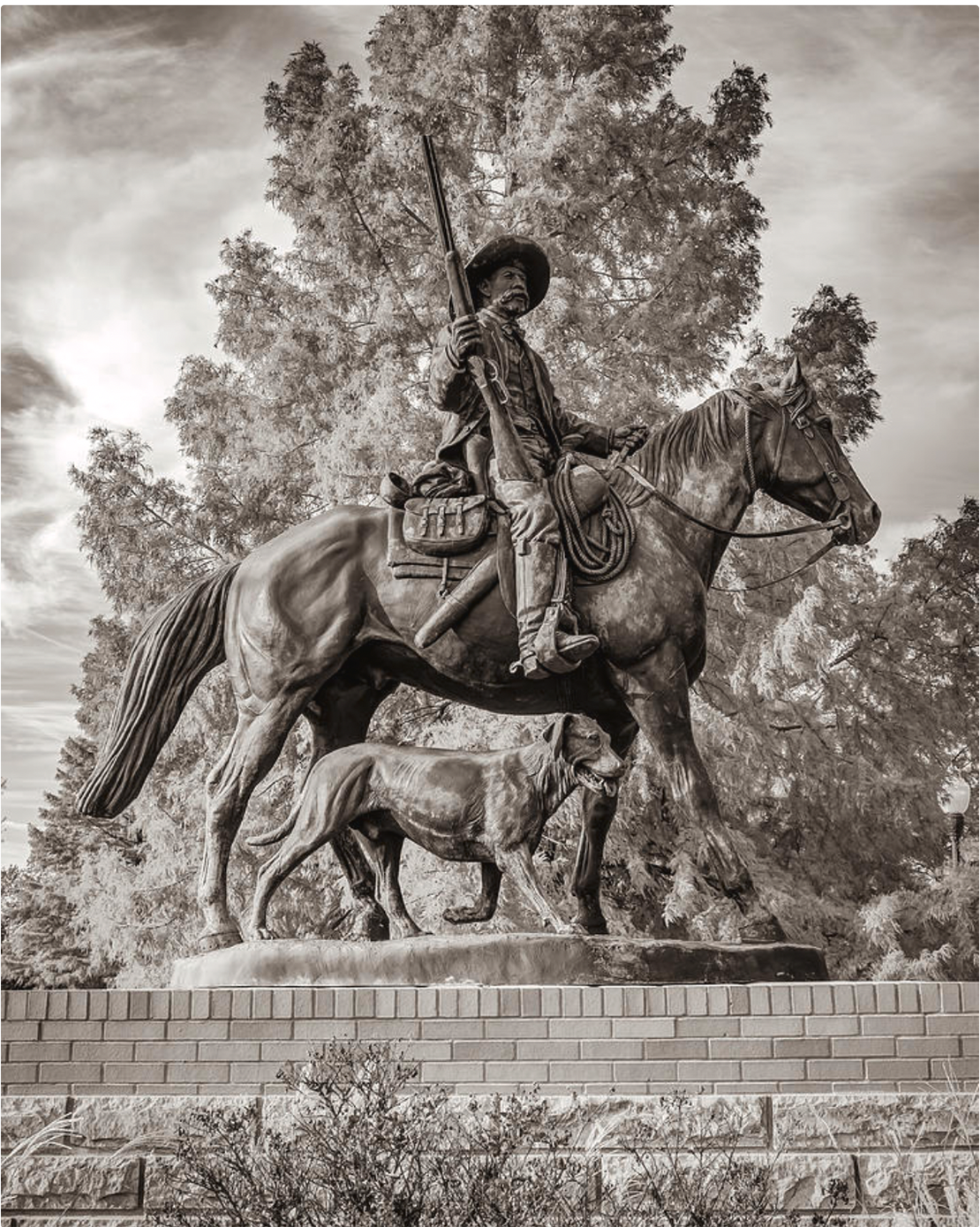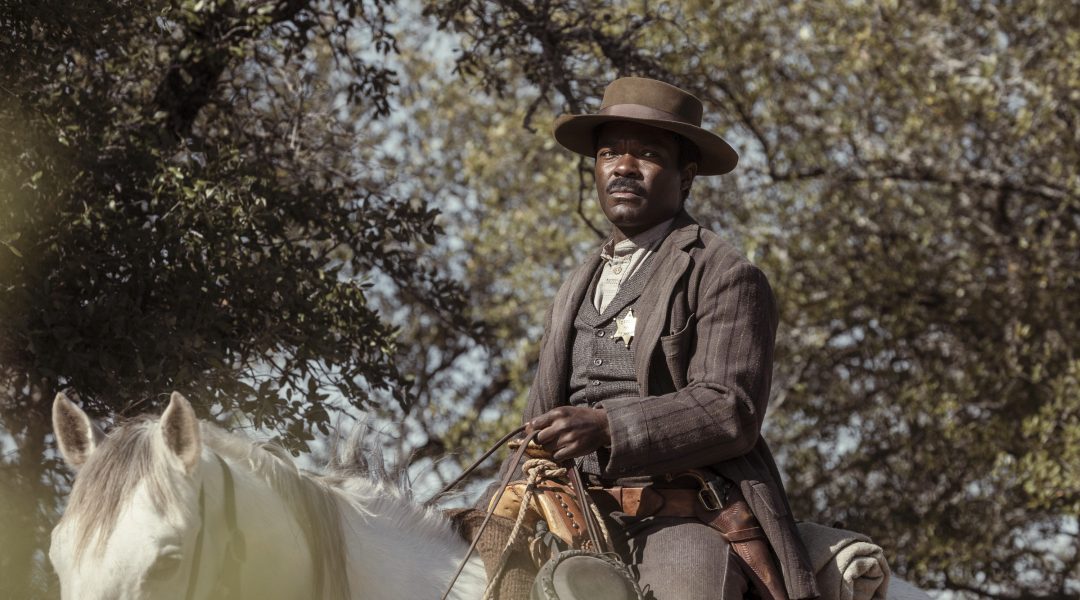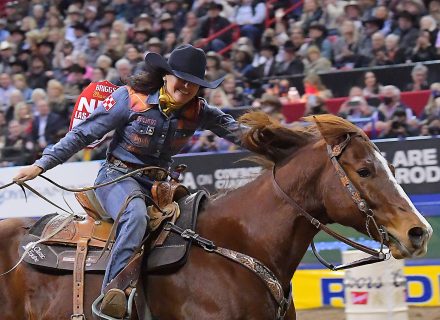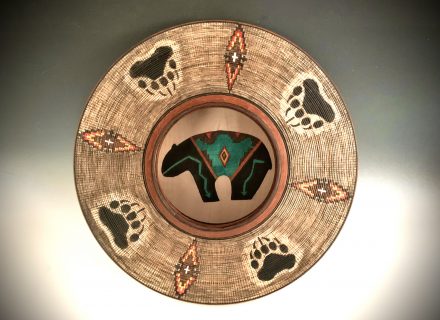The first Black U.S. Marshal West of the Mississippi was known for many things, among which was his superhero-like strength.
Reeves' physical strength was also legendary in the territory. Once, while riding in the southern portion of Chickasaw Nation, Reeves came upon some cowboys attempting to extract a full-grown steer from one of the bogs along Mud Creek, which emptied into the Red River. The cowboys had roped the steer and were attempting to bodily drag it back to solid ground using their horses. Several ropes had broken under the strain. The steer was big and was buried so deep in the bog that only its head, its neck had been pulled and stretched until its tongue lolled out of its mouth into the mud and slime of the. bog, and its windpipe was so restricted by the ropes that its breath was only an occasional labored, rasping wheeze. In fact, the cowboys were almost ready to give him up as lost. They were seriously considered riding off and leaving the steer where they found him, with a bullet in his brain to soothe their consciences and mark their defeat.
Bass rode up, watched for a few minutes, and grunted his dissatisfaction. Then, stepping down from his horse, he began to strip off his clothes.
Without saying a word, he stepped into the bog and began to work his way out to the trapped steer.
 Bass Reeves monument by Harold T. Holden, Pendergraft Park, Fort Smith, Arkansas.
Bass Reeves monument by Harold T. Holden, Pendergraft Park, Fort Smith, Arkansas.
First, he removed all the ropes so that the steer could breathe again. Then, grabbing the steer by the horns, he began to lift and pull, all the while talking in a low, steady voice to the steer. He pulled and heaved and lifted and grunted under the strain until he sank into the mud almost to his waist before the cowboys could detect the first progress in moving the steer. Stopping to catch his breath, he wiped his sweating, muddy hands dry on the back of the steer, and stopped to lift and pull again.
Ever so slowly, the steer was lifted until the lethal suction of the bog holding the forequarters of the steer was broken. Reeves then moved to the steer's flank and began the tortuous process again. By this time, the steer had regained its breath and began its first attempts to help itself. These attempts were feeble at first but grew strong with each great, sucking breath.
Reeves repeated this process of lifting and pulling, first at the steer's head and then at its flank, until the steer, with great, convulsive twists and turns, was able to lunge toward solid ground under its own power. Upon reaching solid ground, the steer, without so much as a glance at its savior, wobbled off into the brush and disappeared, bawling its triumph for all the Chickasaw Nation to hear.
Reeves waded out of the mud, scraped himself as clean as he could with the flat of his hands, stuffed his clothes into his saddlebags, mounted his horse, and rode off stark naked while mumbling something about "damed dumb cowboys." He rode off without saying a word to any of the dumbstruck cowboys, even though he had been there for almost a full hour.
Read our Bass Reeves Special — including an interview with David Oyelowo, the story of the real Bass Reeves, and our Sneak Peek of the New U.S. Marshals Museum.
This article appears in our January 2023 issue.
Reproduced from Black Gun, Silver Star: The Life and Legend of Frontier Marshal Bass Reeves by Art T. Burton. Copyright 2006 by the Board of Regents of the University of Nebraska. Used by permission of the University of Nebraska Press.
Photography: Courtesy of Gregory Ballos Fine Art LLC.

















